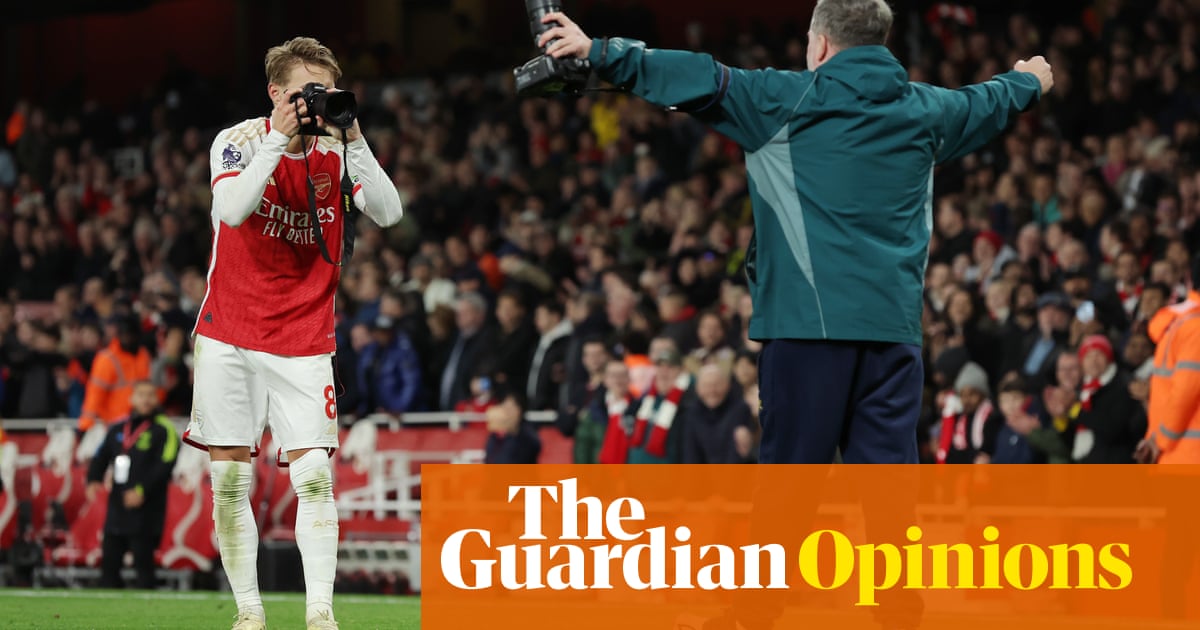
Last week, Britain’s media regulator Ofcom published a call to action for a “stronger system of public media”, which urged a “radical” move towards digitisation, and potential extra fiscal support for certain areas such as regional activity. The report opened with a quote from Dame Melanie Dawes, Ofcom’s chief executive, outlining a “triple threat” to public service media, “from large global players, viewers turning towards online services, and increasing funding pressures”.
But no mention was made of a more insidious threat to UK public broadcasting in 2021. This is the determined and sustained efforts to turn Britain’s largest public service broadcaster, the BBC, into a politically tinged state news service – of the sort you might expect to find in Viktor Orbán’s Hungary.
This might seem a histrionic claim. However, as the Financial Times first revealed earlier this month, the BBC is treading a path to losing its independence and compromising its editorial integrity. According to the FT, Sir Robbie Gibb, a long-time BBC producer who left the corporation to become Theresa May’s head of communications in No 10, and has more recently joined the BBC board of directors, warned Fran Unsworth, the head of news at the BBC, about the appointment of a journalist he deemed hostile to the government.
In a text apparently intended to intervene in the editorial appointment process, Gibb warned against appointing the former HuffPost UK editor Jess Brammar to a new BBC role as the head of news channels.
Gibb’s defenders say that he was simply warning Unsworth that this would outrage the government. Brammar had previously worked at the BBC as deputy editor of Newsnight, and was most recently editor-in-chief of HuffPost UK, where she developed a reputation for investigative reporting and leading a digital newsroom. Nothing about Brammar’s journalistic credentials is in question – the alleged warning was simply meant to suggest that her appointment would so egregiously upset the current Conservative government that this could prove detrimental to the corporation’s future.
The BBC’s response has been to say that it (rightly) doesn’t comment on recruitment processes, and that board members are free to discuss matters among themselves. If this adheres to board protocols, it seems like an unusual lapse in the BBC’s governance: can independent directors with overt political and commercial interests really weigh in on the hiring of middle-management editorial positions?
To have a public relations executive on the board of an independent public broadcaster is akin to appointing a fox to the board of a chicken farm. Sir Robbie Gibb was a masterful BBC producer whose own political leanings to the right did not apparently compromise his editorial standards or enrage governments with anything more toxic than terrible musical skits on his Daily Politics show. More recently, Gibb served as an adviser to Andrew Neil’s “anti-woke” GB News network prior to its launch.
The wording of Gibb’s intervention is disputed, but the fact he made it is not. In some ways his role in this is the most comprehensible; leaning on the door of BBC independent governance to see if it gives way. The leak was useful to those wishing to illustrate the kind of pressure the BBC is under from the right, but also to those wishing to spread the disinformation that the BBC is a leftwing news organisation.
The leader of the House of Commons, Jacob Rees-Mogg, jumped at the chance last week, asking on his Conservative Home podcast, “When did the BBC last hire somebody from Conservative Home to come to be their senior figure or from the Daily Telegraph?” Rees-Mogg’s plaintive cry about the political orientation of the BBC’s news staff overlooks all available evidence to the contrary. But that is, after all, how disinformation works.
The BBC is led by someone with open political affiliations: BBC director general Tim Davie at one time stood as a Conservative councillor, and it has a number of editorial staff who have clear and well-known links to the Conservative party and yet somehow are still able to raise inquiry above belief and produce balanced journalism.
In fact the well-trodden path from the BBC to Conservative party is far more marked than the traffic between the Labour party and the BBC. Three consecutive Conservative prime ministers have drawn their communications advice from former BBC staffers: just as Sir Robbie Gibb served Theresa May, David Cameron’s former head of communications Sir Craig Oliver was once controller of BBC News’s English-language global services, and Boris Johnson’s recent press secretary Allegra Stratton was a former political editor of Newsnight.
The majority of the commercial national news organisations in the UK are oriented towards the right, including the papers owned by the ultra-conservative Rupert Murdoch. More recently, the online market has seen the emergence of a number of smaller outlets with younger, more politically left-leaning editorial teams, including HuffPost UK, which Brammar edited until its merger last year with digital marketing and news company BuzzFeed. Brammar’s Twitter feed, media presence and private life have meanwhile been picked apart by other rightwing media operatives, such as the political gossip blog Guido Fawkes – which “revealed” Brammar had posted a black square on Instagram last year in support of the protests following the killing of George Floyd, supposedly evidence of her radical political activism.
But Brammar’s social media posts are actually a distraction from the main thrust of this campaign. The disquieting texts to Fran Unsworth, the deliberate misinformation spread by Rees-Mogg, the trolling from Guido Fawkes – this is all part of how authoritarian populists operate, inverting the truth and discrediting the press.
Trust ratings in all news grew during the pandemic, albeit from a low base. And trust in the UK remains highest in the mainstream public service broadcasters, led by the BBC. The Johnson government wishes this was not the case. Its public campaign against Brammar is evidence that a destabilised BBC, politically captured, where news executive appointments have to be approved by No 10 is closer to a reality than is at all comfortable in any functioning democracy.
This attack on public media is happening across the globe in both dictatorships and democracies. Sweden’s rightwing Moderate party has recently suggested as part of its policies that political appointees should monitor all channel outputs, and last year the journalism organisation Reporters Without Borders published a report on the Swedish public broadcasting highlighting how the politicisation of the national broadcaster encroaches on press freedom. Many of the themes: threats to funding, narrower focus, more conservative voices and now central control of editorial are resonant with the current situation at the BBC.
In the dying days of Donald Trump’s presidency in the United States, the US overseas mouthpiece Voice of America also underwent something of a Trumpian “coup”, when Trump appointee Michael Pack set out to “drain the swamp”, as he put it, by replacing long-serving journalists with new Trump acolytes.
The jaw-dropping revelations by investigative journalism collective Forbidden Stories and partners including the Guardian that spyware technology has been used by states to track and possibly harass journalists around the world is a shocking wake-up call. But the dampening of journalistic inquiry, and removal of “inconvenience” to corrupt governments is a priority and comes in many forms. The BBC should be subject to scrutiny and criticism. As a public broadcaster it should be open about its processes and governance, up to and including text exchanges between board members. But it should be free to appoint executives, editors and reporters without political interference and pressure.
The regard a country has for freedom of the press can often be measured by how it approaches the mission of public service broadcasting – and whether ruling parties are able to respect the independence of journalistic inquiry and editorial decision-making. Thanks to Gibb’s intervention, and the campaign waged by the government’s allies, the minor issue of an editorial appointment has become a significant test for the independence of the BBC.
Emily Bell is director of the Tow Center for Digital Journalism at Columbia University’s Graduate School of Journalism and a Guardian columnist












